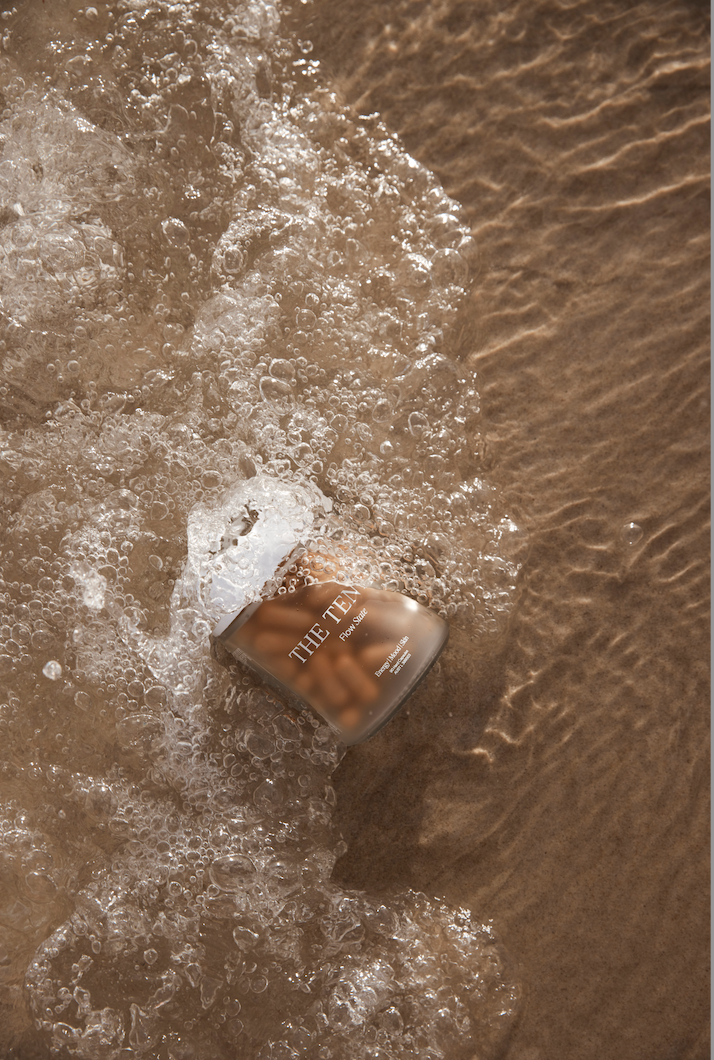Maybe it’s that time of the month? Maybe it’s work? Maybe it’s normal for my age? Maybe it’s something I ate? Or how I slept?
Maybe it’s something you can actually overcome?
“Fight/Flight” mode is essential and automatic part of our physiology, when it’s balanced our bodies are able to switch between ‘on’ and ‘off’. It becomes taxing when it becomes always ‘on’. You can think of it like the ‘foot stuck on the accelerator’. Many of us don’t even realise it, because we are so used to operating in this state.
We have so much on our minds that we don’t realise how being always ‘on’ (stress) is showing up in our bodies.
We’re here to help you learn to relax. Sounds ridiculous we know. But if you think about it, how many times have you been in the perfect setting still feeling a lil tense? Not being able to relax? Even if you wanted to. We know we have.
What can you do about it?
The answer is not to have more cocktails at the pool.
It starts with nourishing your nervous system, (enables your relaxation response), try the tips in this post as well as a daily dose of the Flow State✨ to support your body and mind with the right nutrients - it’s possible to feel calm, energised and revitalised again.
Do you find it hard to relax?
Life can be hectic, and it's easy to get caught up in the daily grind. But if you find it difficult to unwind and relax, it could be a sign that you're more stressed than you realise. Constantly feeling on edge and unable to calm your mind are common symptoms of stress.
Do you have trouble sleeping?
A good night's sleep is essential for overall well-being. If you find yourself tossing and turning, unable to fall asleep or stay asleep, stress could be the culprit. Racing thoughts and worries can keep your mind active, making it difficult to relax and drift off into a peaceful slumber. Consider incorporating relaxation techniques into your bedtime routine to help combat stress and improve your sleep quality.

Are you experiencing changes in appetite?
Stress can have a significant impact on your appetite. Some people may find themselves reaching for comfort foods as a way to cope with stress, leading to weight gain. On the other hand, stress can also cause a loss of appetite, resulting in unintended weight loss. If you notice significant changes in your eating habits, it's worth considering whether stress is playing a role.
It's important to remember that stress affects everyone differently, and these signs may vary from person to person. However, if you resonate with any of these symptoms, it's worth taking a step back and evaluating your stress levels. Finding healthy ways to manage stress, such as exercise, meditation, or talking to a trusted friend or therapist, can make a world of difference in your overall well-being.
Are you experiencing frequent headaches or body aches?
Stress can manifest physically in the form of headaches, body aches, and muscle tension. If you're constantly popping painkillers or finding yourself reaching for a massage, it might be time to take a closer look at your stress levels. Pay attention to your body's signals and take steps to address the underlying cause.

Do you jump/startle at sudden noise?
Have you ever noticed that when you're feeling stressed, even the slightest noise or unexpected movement can make you jump out of your skin? You're not alone. Many people experience heightened startle responses when they're under stress. But why does this happen? Let's dive into the science behind it.
The startle response is an automatic, involuntary reaction to a sudden, unexpected stimulus. It's a survival mechanism that prepares your body to react quickly to potential threats. When you're startled, your heart rate increases, your muscles tense up, and you may even let out a little scream or yelp.
When you're stressed, your body is already in a heightened state of arousal. Your nervous system is on high alert, ready to respond to any potential danger. This increased state of arousal makes your startle response more sensitive. So, even a small, harmless noise or movement can trigger a bigger startle reaction than it would if you were feeling calm.
Why does stress make the startle response more sensitive?
Stress affects the brain and the body in various ways. One key factor is the release of stress hormones, such as cortisol and adrenaline. These hormones increase your overall arousal level and make your nervous system more reactive. As a result, your startle response becomes more sensitive and exaggerated.

Feeling exhausted or flat?
Life can be overwhelming at times. Between work, family, and personal responsibilities, it's no wonder that many people experience feelings of exhaustion or flatness. But did you know that these symptoms could be a sign of constant stress.
What is constant stress?
Constant stress, also known as chronic stress, is a state of prolonged psychological or emotional tension. It occurs when you're exposed to stressful situations or demands for an extended period of time without adequate time to recover. This can lead to a variety of physical and mental health issues, including feeling exhausted or flat.
How does constant stress affect your body?
When you're constantly stressed, your body goes into overdrive. It releases stress hormones like cortisol, which can disrupt your sleep patterns, increase your heart rate, and even affect your immune system. Over time, this can leave you feeling drained, both physically and mentally.
Why does constant stress make you feel exhausted or flat?
Constant stress takes a toll on your energy levels. When your body is in a constant state of fight-or-flight, it diverts resources away from non-essential functions, like digestion and reproduction, to focus on immediate survival. This can leave you feeling depleted and lacking the energy you need to tackle everyday tasks.


